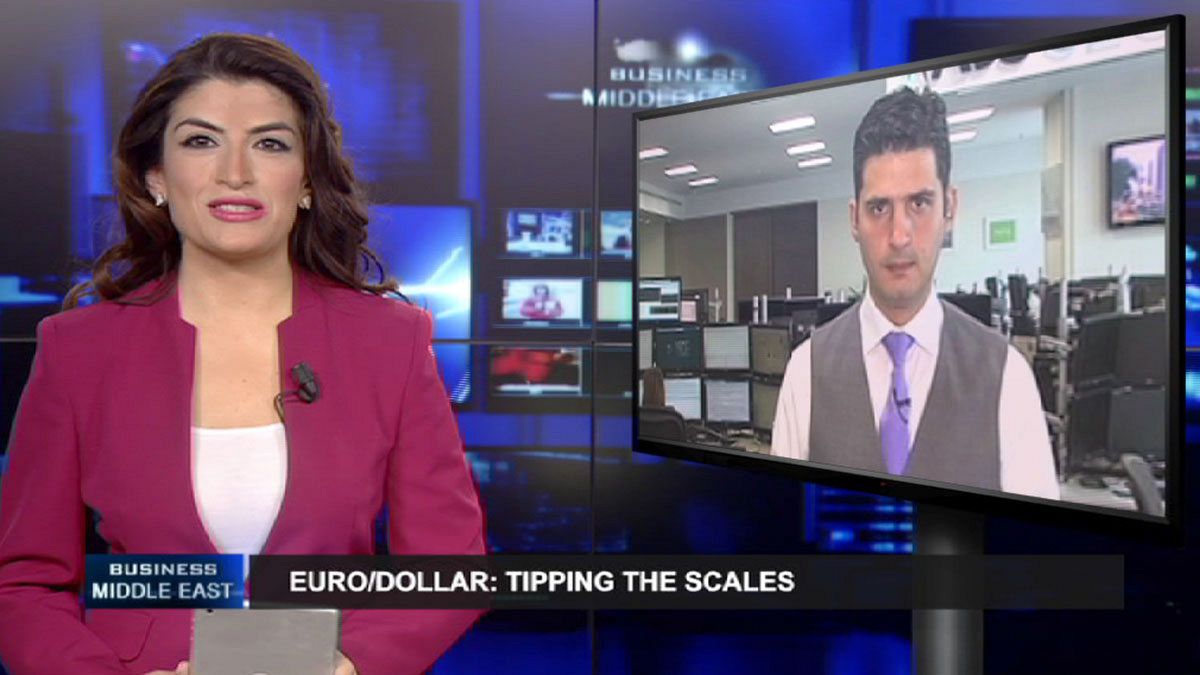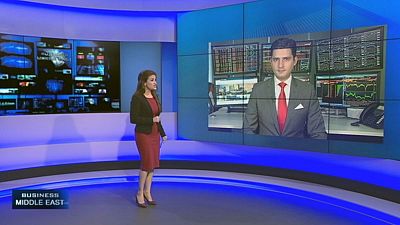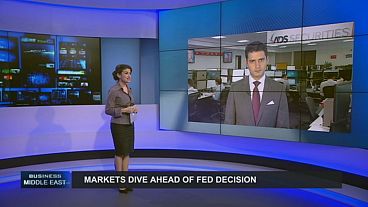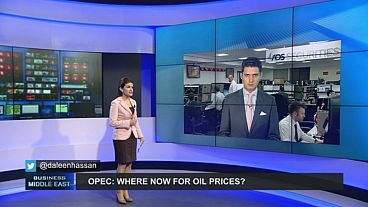Welcome to business Middle East. In this edition we look at possible scenarios for the euro, and in the business snapshot, Egypt opens its arms wide
Welcome to business Middle East. In this edition we look at possible scenarios for the euro, and in the business snapshot, Egypt opens its arms wide to investments.
Are you wondering where to spend your next vacation? Looking for a cheap destination?
Well, then it may be a good time to visit Europe, especially since the euro exchange rate fell last week to its lowest level in 12 years and is now almost on a par with the dollar.
Goldman Sachs has forecast that the euro will drop below parity against the dollar by the end of 2016. What if this comes true?
Quantitative easing – a licence to print money
The European Central Bank has begun its quantitative easing program, pumping more money into the economy. The aim is to boost European economies as deflation fears remain high.
Last week the euro dropped to its lowest level in 12 years against the dollar. It was close to parity as the euro is now valued around 1.05 to the dollar.
At the same time, the dollar rose against most currencies during trading last week. With the value of the euro in decline, European exports could become cheaper and thus bring more foreign customers to the market, which would support demand for European products and create jobs in the export sector.
Tourism may be the biggest beneficiary of this euro’s depreciation. Some estimates suggest Europe can expect more visitors from the US and Middle East this summer as the exchange rate is greatly in their favour.
Euro exchange – the expert’s view
For more analysis on the battle of supremacy between the euro and the dollar, we spoke to Nour Eldeen Al Hammoury, chief market strategist at ADS securities in Abu Dhabi.
Daleen Hassan, euronews: Euro expectations seem low, is it possible to witness a drop below parity?
Nour eldeen Al Hammoury: “There is a possibility for the Euro to trade below the parity level this year. We are very close to parity anyway. However, a decline below parity will be based on the central bank’s decisions. The ECB is buying assets while the Fed might raise rates in June. If this happens, yes the Euro might decline to 0.90. However, if the Fed retreats and keeps the rates lower for longer, the euro may stabilise above the parity level which is what we expect.
en: What are the challenges facing Europe today with the quantitative easing program?
Al Hammoury: “The biggest challenge for the ECB and Europe as a whole remains sovereign debt, which continues to rise. The ECB QE will increase its balance sheet to where it was before the previous crisis, therefore, it will be a challenge when the bank decides to unwind its balance sheet.
en: Following the recent movement of the dollar and the Fed, what is the impact of investment in the Arab region?
Al Hammoury: “There are advantages and disadvantages at the same time. The rising US dollar is negative for companies which import raw materials from the US or use the dollar. However, its positive for companies buying European raw materials due to the cheap euro.”
“In addition to all that, investments from Europe to the Middle East are likely to rise amid the continuous problems in Europe. Moreover, raising rates in the US will lead investors to relocate their investments from the US stock market to Europe or the Middle East as well.”
Business snapshot
Egypt the Future – an economic investment conference, was recently held in Sharm El-Sheikh with high level figures attending from more than 80 countries.
Billions of euros were promised to pour into the land of the Nile during the gathering and energy sector deals stole the limelight.
Our correspondent Mohammed Sheikhibrahim was at the event.
Investment deals worth more than 36-billion euros were signed at Egypt’s economic conference “Egypt the future”
Besides major Gulf backers United Arab Emirates, Saudi Arabia and Kuwait, there was also support from the West in the shape of the United States, France, Britain and Germany.
Egypt’s energy sector drew lots of attention and many huge deals signed to develop the country’s electricity networks.
Osama Bishai, Chief Executive officer at Orascom said: “The energy sector here in Egypt is very important, there is a gap between consumption and production of energy annually, and in a state of maximum consumption sure we are going to see more demand.”
“For investors, this is a very important area, because you know we can’t achieve growth and development in Egypt without electricity,” added Bishai.
Egypt also unveiled plans to build a new administrative capital east of Cairo, within five to seven years at a cost of around 45 billion euros.
According to Housing Minister Mostafa Madbouli, it will be largely dependent on renewable energy: “90 square kilometers will be powered by solar energy.”
Egyptian President Abdel Fattah al-Sisi was grateful for the support but also stressed in his closing remarks that Egypt needs more.
“I see the solution just like I can physically see you. Egypt wants no less than $200-300 billion to have real hope to exist, for the 90 million people to truly live and truly work and be truly happy.”
Our correspondent Mohammed Sheikhibrahim said: “Egypt now stands poised to receive a major injection into its economy, but the challenge remains as to when these ambitious projects will get off the ground.



